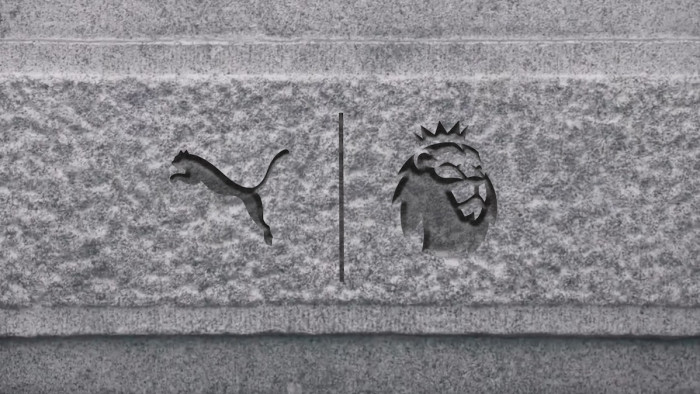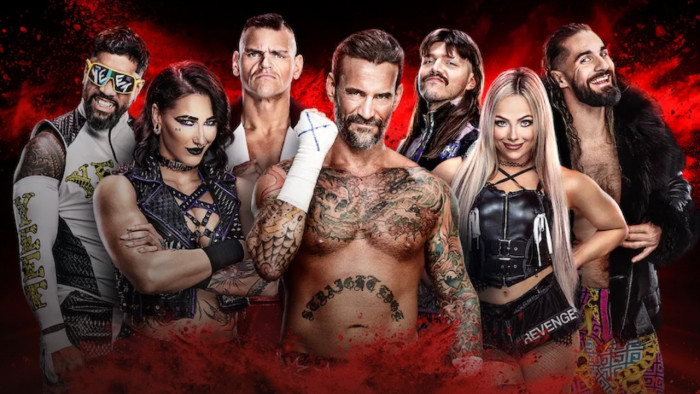Why do we find it so compelling to watch great men fail?
After an eyeball-searing summer of sport, why is it that the stories of loss still make the biggest impression?


It isn’t that we like to see great sportsmen fail. It’s that we need them to fail to be great. We can’t empathise with genius. We’ll never know what it is to be the fastest man in the world. But – in relationships, jobs, the battle to best our own worst impulses – we’ve all lost a race. When great men fail, we see our humanity reflected. And if our gods are to be gods, they must be human too.
So it is with the imperious, elegant, somehow medievally handsome Roger Federer. His brilliance beaches us in our ordinariness. By transcending the game, he has become not just above tennis, but above us. We expect victory as we might water from a tap. And yet, while it’s wonderful to watch when he wins, it is tough to find foothold in our feelings for Federer beyond distant admiration – that which we might feel for a work of art behind a velvet rope – because, well, he’s the greatest male tennis player of all time, and what would we know about that?
But in defeat we are closer. When he sends a tired return skyward over the lumbering frame of South African Kevin Anderson in the fifth-set death throes of this year’s Wimbledon quarter-final, we understand him. As he trudges towards the net, a gracious extended hand, diverting from a face sallow, sad and folding, we empathise. Not because we know what it is to be denied a 21st Grand Slam. Because we know what it is to fall short.
It is impossible, then, to relate to Lionel Messi with the ball at his feet. As exhilarating as it is to witness him in flight, a panicked defence splintering around him, we’ve no more in common with Messi than we do a Corvette. Equally, we’ll never be able to comprehend the preternatural vision of Cristiano Ronaldo, stood above a dead ball like a mantis, bristling with a surety he’ll score. They are otherly states – that of a robot or machine – beyond our ability or understanding, and so repellent of empathy.
But the Messi who loitered forlorn in the centre circle after Argentina’s 4-3 World Cup defeat to France, as the realisation dawned he’d probably never lift the trophy that for so long seemed his birthright, we know him. Or the Ronaldo whose heart broke in Russia, aware that no amount of practice, talent or will could win him that which he wanted most. We know him too. They have failed. In these rare and fleeting moments, their dreams scorched and vulnerabilities exposed, they are us, and their victories are all the greater for it.

Messi, pictured after his Argentina side lost 1-0 to Germany in the 2014 World Cup final
We don’t want to see great men fail, but we understand them better when they do.
“If athletes do not seem human, it makes it hard for us to identify or sympathise with them,” says Professor Stephen Mumford, professor of metaphysics at Durham University’s department of philosophy and author of the forthcoming Football: The Philosophy Behind The Game.
“No one can feel an affinity with a robot, as Theresa May has proven.”
We’re more emotionally engaged with other people’s highs once we’ve borne witness to their lows. This is the dramatic arc of every hero in every movie. It’s how stories are told, and how we’re tethered to them. Without failure, there is no redemption, no stakes, no third act. Without failure, success is abstract.
So while we love watching great athletes succeed, when they fail, it enhances our appreciation for them. We like them more because they’re more like us.
“We like to take lessons from sport and apply them to our everyday lives,” says Mumford. “One thing that helps that is if we see the human being behind the sportsman or woman. If they struggle and win, it shows us something more valuable than someone who wins effortlessly.
Without failure, there is no redemption, no stakes; success is abstract
It gives us hope that we too can bounce back from a low point. The best example of this is Gareth Southgate being England’s first penalty-shootout-winning manager in more than 20 years after being the one in tears for missing in Euro 1996. I will not be surprised if the scenes after the Colombia game become some of the most loved and discussed in the history of English football.”
The England team’s progress through, and ultimate departure from, the 2018 World Cup was a stark reminder of how failure – and, importantly, a graciousness in failure that English football’s ‘golden generation’ lacked – is vital for fans to sympathise with the athletes on to whom they project their hopes and dreams. They loved the realness of Maguire, Trippier and Stones in their loss far more than they ever did Lampard, Terry and Cole, whose failure, through hubris, they never owned, and which therefore seemed deserved rather than tragic.
“Neoliberalism sets us against each other as competitors,” says Mumford. “But most of us would prefer to see our own team win because they play well rather than just because the opposition have a terrible game. We want to be good, not just for the opposition to fail.”
And England can be as good losing as they can winning. Failing with humility made England’s response as a nation to this team profound and ultimately uplifting. The opposite can be said for Neymar, who, while undoubtedly a superior footballer, was impossible to empathise with following Brazil’s exit from the World Cup because we’d spent the previous fortnight of the tournament watching him roll around on the ground like he’d been set alight. Neymar was a cheat, and so we were no more capable of achieving a meaningful emotional connection with him than we are with a seagull stealing our chips. We can still admire his talent. But he’ll never be us.

Author, historian and classicist Ferdinand Addis finds comparable, albeit more bloody, examples of failure increasing public empathy through history.
“In 1848, there had been unrest all over Europe – liberal nationalists kicking out dynastic monarchs. Most of these rebellions were suppressed relatively quickly though, and by 1849 Rome was one of the few revolutionary cities still holding out,” he says.
“Giuseppe Garibaldi, a charismatic freedom fighter, led the defence of the city against a French army, battling overwhelming odds. It was very soon clear that there was no way to win, but there was this idea of martyrdom, of paying a price in blood for national liberation. Young Italians charged with suicidal bravery into the French guns, dying by the hundreds. When Garibaldi and his surviving men were forced at last to abandon Rome, they left as tragic heroes. ‘Never have I seen a sight so beautiful, so romantic and so sad,’ wrote an American journalist. London was gripped by Garibaldi-mania. The victorious French, on the other hand, were considered to have been rather unsporting, deploying rifles and artillery and the dull mechanical tools of modern war against all that bright, youthful courage.”
While sport isn’t war, it can sail close to combat. Derek Redmond was downed in battle by a hamstring injury at the Olympics in 1992 and carried to the finish by his father (below).

“If athletes don’t seem human, it makes it hard for us to identify with them”
And Chris Froome was punched and spat at four miles from the summit of the Alpe d’Huez’s signature climb at this year’s Tour de France. It was a risible act of violence performed by an idiot, but it clearly shook Froome, and we could all identify with his fear and anger. In that moment we had a glimpse of the man who was until then portrayed by a press obsessed with his vilification as a remorseless, dead-eyed parasite, sucking on the skin of the sport.
“[We need to see greats fail because it shows] that we are all human, sometimes doing well, sometimes not,” says clinical sports psychologist Dr Victor Thompson. “Mistakes, errors, failure happen to all of us – given enough time. Through their failures, we get to know a bit more about athletes, understand them better, see that they are a bit more like us: imperfect, facing challenges.”
Imperfections also made a nation empathise with Andy Murray. Until his voice cracked, Murray might as well have been a statue. Minutes earlier Federer had beaten him to the 2012 Wimbledon title over four gruelling sets. Murray took the microphone. His lip began to shake. “All right, I’m gonna try this, but it’s not going to be easy,” he said. And then he started to cry.
Despite transforming from string bean to big cat before our very eyes, winning prestigious titles and mixing it with a generation of players in Federer, Djokovic and Nadal that redefined what was possible in their sport, Murray had remained cold in his magnificence and promise.
He admirably refused to bend to the whims of certain sections of the media, which wanted British athletes with glamorous wives to be the Beckhams, while all Murray appeared to want was for that same media to leave him alone – because of shyness, insolence or, more likely, a professionalism and wisdom beyond his years. This depressingly but predictably resulted in anti-Murray, and anti-Scottish, sentiment from a powerful press that hates more than anything to be ignored. As a result, it wasn’t that the public wanted to see him lose, but they didn’t care so much whether he won. Until, that is, he cried.
“We could see how much it meant to Murray,” says Thompson. “And we could appreciate that: his achievement, and to see that in addition to being a bit angry or monotone, he has strong emotions, too. These emotions resonated for us viewers. His reactions told us a bit more about his character. It felt good for us. We felt more affiliated with him and became even bigger fans.”
As this summer withers and dies on the vine, and we’re left with an England football team with whom fans have an emotional connection they’ve not experienced in decades – shall we even call it love? – it’s nice to be reminded, when evidence elsewhere is scant, that the way we fail might mean we never fail at all.
(Images: PA/Getty)
Latest
Related Reviews and Shortlists









